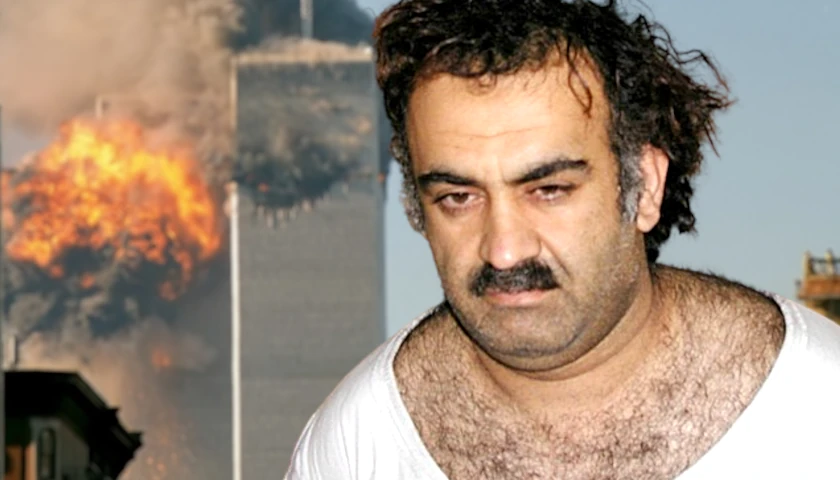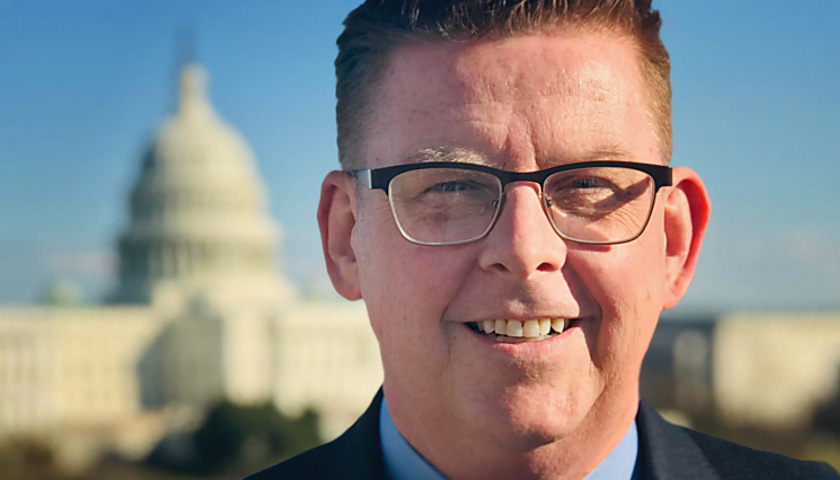by Christopher Roach
This week, we were reminded again of the 9/11 attacks. First, it was reported that U.S. government lawyers and defense counsel reached a plea deal giving life imprisonment to the high-level al Qaeda prisoners that plotted the attacks. While life imprisonment is undoubtedly a serious punishment, 9/11 was a mass murder that cries out for the death penalty. The lack of proportionality to the offense was striking.
Worse, the family members of 9/11 victims were not given any forewarning or a chance to provide input on this decision, even though the government had promised to do so. They instead received an antiseptic letter explaining what happened after the fact.
After an outcry from the public, the asleep-at-the-switch Secretary of Defense removed and replaced the convening authority with himself on Friday of last week. There is no guarantee that a similar plea deal or an even worse one will not eventually be reached. But the change increases political accountability and does restore the possibility of the death penalty.
The Country is Forgetting 9/11
In general, 9/11 has become more forgotten than it should be. There have been few public commemorations in recent years. Millions of younger Americans have no memory of the event. The media and gatekeepers of culture do not emphasize 9/11 because the patriotism, anger, and genuine national unity of that day are out-of-kilter with the times.
Our discussions of immigration policy rarely mention how the 19 hijackers from the Middle East got here because of our overly generous student visa system. Today, those preaching open borders appeal to compassion, as if 9/11 did not make it obvious that there are foreigners who would like nothing more than to kill Americans.
Part of this forgetfulness may stem from the confused response to 9/11. Even before the Iraq War misadventure, the Bush White House’s response to 9/11 was a bit schizophrenic. The rhetoric was strong, and the military was dispatched quickly to Afghanistan, but internal security policy made little sense. De facto open borders continued, and the chief innovation was a massive bureaucratic reorganization, creating the Department of Homeland Security.
It is not clear whether DHS did anything to make us safer, but it did create a bunch of work for government bureaucrats and contractors. DHS’s subsidiary, the TSA, did do a good job of making airline travel hellish. Thus, ever since, foreign-born security personnel shake down grandmothers whose ancestry can be traced back to the Mayflower.
The military response in Afghanistan initially succeeded in scattering and weakening al Qaeda. Our forces took prisoners incidental to these operations and through targeted raids, catching some of the top plotters of the attacks, even as Osama bin Laden remained at large. Among those captured was the infamous and physically repulsive Khalid Sheikh Mohammad.
He had been a Muslim Brotherhood member and later a senior al Qaeda official. He was central to planning the 9/11 attacks and was taken prisoner along with several other al Qaeda leaders, including Ramzi bin al-Shibh. After being moved around various “black sites,” he and his coconspirators were sent to the American base in Guantanamo Bay, Cuba—i.e., GITMO—along with other prisoners, including al Qaeda foot soldiers and individuals providing them assistance.
Admittedly, in some cases, Afghans looking to settle scores simply lied about their personal enemies, who ended up in the net. But a great many were guilty of something, either plotting acts of terrorism or otherwise supporting al Qaeda and the Taliban in their ordinary combat against American troops in Afghanistan.
“America Last” Types Always Hated GITMO
In a testament to the American left’s misplaced sentimentality and indifference to public safety, the plight of GITMO prisoners became a big cause for a while. In his run for president, Obama promised to shut down the camp. Prestige law firms sent their associates down there to get these mass murderers the best deals they could.
While I support giving any American citizen the benefit of counsel for violating the laws of his country, the only concern of proceedings at GITMO should have been (a) who is this person and (b) what evil has he done. In other words, military trials should have been streamlined and focused on the interests of the United States, not abstract “rights” for our enemies or providing them the luxury of civilian-style adversarial proceedings.
While a few cases were disposed of, the procedural logjam continued. A small number of prisoners started trickling home or were sent to neutral countries. Some of these were innocent or low-level, but some were released only to return to the battlefield.
In the biggest insult, the Obama administration traded five high-level Taliban officials for Bowe Bergdahl, an American deserter held captive by the Taliban. Obama bragged that Americans “leave no man behind,” as if deserters and soldiers serving honorably have an equal claim to our efforts.
From 2002 until now, a few high-level al Qaeda operatives were held at GITMO. Thankfully, they were being held indefinitely as “unlawful enemy combatants,” even as their parallel criminal proceedings for war crimes dragged on.
Many of the proceedings faced obstacles because the U.S. government did not want to disclose the use of torture to obtain intelligence information, whether or not that information would be used in criminal proceedings. The desire to obtain a conviction and continue to keep a lid on such practices was apparently the driving force behind the brief life of the plea deals.
One reason the military tribunal process was so Byzantine is that the civilian judiciary and its lawyers got involved early and hijacked the process. Lawyers do not think any act of government should happen without judicial oversight. They prefer to forget that unreviewable areas of discretion are sometimes reserved for the other branches, such as the congressional power over impeachment or the presidential pardon power, as well as his rights as commander in chief of the armed forces.
Housing al Qaeda prisoners at GITMO began as a loophole to avoid the reach of the otherwise-unstoppable courts. The Bush administration hoped that this detention camp for terrorists would be deemed to fall within the purely executive powers over the conduct of war. The courts would not have it; instead of going full Andrew Jackson, the Bush administration ultimately acquiesced to judicial oversight after the Supreme Court’s Rasul decision held that the detainees could seek habeas review in American courts.
Was it a War or a Law Enforcement Operation?
The plea deal is a symptom of a broader problem with the 9/11 response. While it was called a war and ushered in military operations within Afghanistan and the broader Middle East, much of the war also resembled a law enforcement operation. When there was tension between the two approaches, the law enforcement approach often prevailed.
For example, what were supposed to be efficient military tribunals became bogged down with layer upon layer of procedure, appeals, habeas petitions, and other delay tactics. These were supercharged by wave after wave of do-gooder “Big Law” attorneys who felt sorry for the terrorists, who killed thousands of people just like them on 9/11.
The twenty-plus years of GITMO hearings, trials, and court proceedings should be contrasted with the businesslike manner General Eisenhower dealt with German commandos’ unlawful use of American uniforms during the Battle of the Bulge. He ordered that any German caught in an American uniform would be executed as a spy, and he followed through. Executions often followed a day or two after military trials conducted in the field. The practice soon stopped. It’s doubtful whether something like this could happen today, even though it is entirely consistent with the law of war.
Indeed, it’s conceivable that a modern-day enemy could conceivably obtain a preliminary injunction against something like D-Day. In the government built by the managerial ruling class, the pen is truly mightier than the sword.
The courts and the country as a whole used to understand that war and peace were different. Military operations required a swiftness and harshness that is quite the opposite of what should prevail in peacetime courts of law. Today, the lines between war, peace, military, and police are completely blurry.
Regarding the particulars, giving Khalid Sheikh Mohammad life imprisonment rather than the death penalty is insultingly disproportionate compared to how our fellow citizens committing street crimes are punished. If someone robs a convenience store in Houston and kills the clerk, he is almost guaranteed the death penalty. But somehow, 23 years after the act, we still haven’t found a way to execute the 9/11 plotters who mass murdered 2,976 of our countrymen.
The magnitude and monstrosity of the offense cannot be overstated. These prisoners are the enemy personified. They should have all been hanged and their bodies incinerated over a decade ago. In other words, however this plea deal came about, it is not good. Replacing it with more years of endless proceedings is also not good.
The Biden administration claims it had nothing to do with the plea deal and that it arose from unsupervised military lawyers wary of exonerations. This is believable, as the Secretary of Defense got involved only after the plea deal for life in prison was in the news. Before that, the entire proceeding was apparently going on autopilot.
Such a posture manifests Joe Biden’s overall lack of control over the government. Throughout the federal government, a vacuum of presidential authority is being filled by shadowy committees and unknown agglomerations of bureaucrats. Deciding how to deal with the 9/11 plotters was always too important to be left up to a bunch of uniformed military personnel and GS-13s. It is shameful that it took this insulting plea deal for this to become obvious.
The late and purely reactive intervention by the Secretary of Defense does not inspire confidence. We are back to the status quo ante: interminable procedural wrangling fueled by civilian lawyers and the moral uncertainty of our political leaders. As it stands, there has been no statement by President Biden or any senior authority that the goal is to give these monsters the death penalty as soon as possible.
– – –
Christopher Roach is an adjunct fellow of the Center for American Greatness and an attorney in private practice based in Florida. He is a double graduate of the University of Chicago and has previously been published by The Federalist, Takimag, Chronicles, the Washington Legal Foundation, the Marine Corps Gazette, and the Orlando Sentinel. The views presented are solely his own.
Background Photo “9/11 Attack” by Robert J. Fisch. CC BY-SA 2.0.





